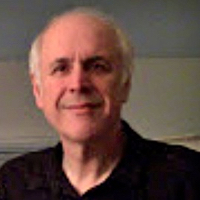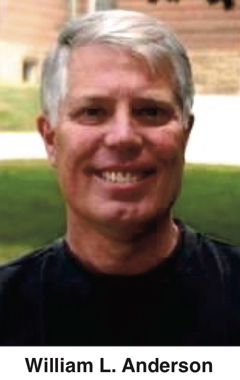Rascals case in brief
In the beginning, in 1989, more than 90 children at the Little Rascals Day Care Center in Edenton, North Carolina, accused a total of 20 adults with 429 instances of sexual abuse over a three-year period. It may have all begun with one parent’s complaint about punishment given her child.
Among the alleged perpetrators: the sheriff and mayor. But prosecutors would charge only Robin Byrum, Darlene Harris, Elizabeth “Betsy” Kelly, Robert “Bob” Kelly, Willard Scott Privott, Shelley Stone and Dawn Wilson – the Edenton 7.
Along with sodomy and beatings, allegations included a baby killed with a handgun, a child being hung upside down from a tree and being set on fire and countless other fantastic incidents involving spaceships, hot air balloons, pirate ships and trained sharks.
By the time prosecutors dropped the last charges in 1997, Little Rascals had become North Carolina’s longest and most costly criminal trial. Prosecutors kept defendants jailed in hopes at least one would turn against their supposed co-conspirators. Remarkably, none did. Another shameful record: Five defendants had to wait longer to face their accusers in court than anyone else in North Carolina history.
Between 1991 and 1997, Ofra Bikel produced three extraordinary episodes on the Little Rascals case for the PBS series “Frontline.” Although “Innocence Lost” did not deter prosecutors, it exposed their tactics and fostered nationwide skepticism and dismay.
With each passing year, the absurdity of the Little Rascals charges has become more obvious. But no admission of error has ever come from prosecutors, police, interviewers or parents. This site is devoted to the issues raised by this case.
On Facebook
Click for earlier Facebook posts archived on this site
Click to go to
Today’s random selection from the Little Rascals Day Care archives….
Click for earlier Facebook posts archived on this site
Click to go to
Today’s random selection from the Little Rascals Day Care archives….
At long last, is APSAC cracking the door to recantation?

youtube.com
Richard Wexler
Oct. 5, 2016
Richard Wexler’s unequivocal recollection of how the American Professional Society on the Abuse of Children promoted the “satanic ritual abuse” day-care panic made me curious about what APSAC might have to say about the subject today.
I was startled to see this description of a presentation at the organization’s most recent (June 21-25) annual colloquium in New Orleans:
“From disco to pet rocks, our past is littered with things which make us wonder, what in the world were we thinking? The field of child maltreatment and interpersonal violence has certainly had its share of misguided ideas, from satanic ritual abuse hysteria to multiple personality disorder treatment centers. How did this field get so many things so wrong?”
Sorry I missed such a provocative self-examination! [I’ll post APSAC’s video soon.]
I asked Wexler, executive director of the National Coalition for Child Protection Reform, whether sanctioning the pet rock analogy might signify APSAC’s tacit disowning of the “satanic ritual abuse” myth.
“I wouldn’t call it disowning,” he said. “Over the years their position seems to have evolved into ‘Well, yes, some people may have been a little overzealous, but…’ At one point, even Roland Summit, in his ‘Tunnels’ article, no less, tried to cast himself as falling between two extremes in the debate.
“What they have not done, of course, is apologize to the children victimized by the McMartin madness, and withdraw the awards given to Summit and [Kee] MacFarlane.”
Nor, of course, have they apologized to the wrongfully prosecuted defendants in cases such as McMartin and Little Rascals.
![]()
Prosecutors’ motto: But they’re still guilty!
Jan. 20, 2012
Although the West Memphis Three weren’t day care workers, their notorious case – most recently updated in HBO’s “Paradise Lost 3: Purgatory” – holds obvious parallels to that of the Edenton 7.
In both courtrooms voodoo justice ruled.
Most poignant to me, however, is that prosecutors in Arkansas and North Carolina shared a dedication to ensuring the defendants’ long-overdue release bore the least possible resemblance to exoneration.
In August 2011 the West Memphis Three were required to enter an Alford plea, maintaining their innocence but acknowledging that sufficient evidence existed to convict them.
On May 23, 1997, Nancy Lamb announced the decision not to challenge the overturned convictions of Bob Kelly and Dawn Wilson in order to “allow wounds to heal…. The paramount thing is not having to drag these children through this again.” Her timing seemed aimed – futilely, as it turned out – at averting the national outrage that would come four days later with the airing of the final episode of “Innocence Lost.”
Two years later, when the last charges against Kelly were dismissed, here’s how Joseph Neff of the News & Observer described the scene:
“The prosecutors in the longest, most expensive criminal case in North Carolina history picked a day when all attention was focused elsewhere to quietly throw in the towel.
“It was Sept. 15, as Hurricane Floyd churned northward toward landfall the next day, that Assistant District Attorney Nancy Lamb filed a two-page document with the Clerk of Superior Court in Edenton, dismissing eight counts of sexual abuse against Robert Kelly.”
System that wronged Betsy Kelly rewarded Nancy Lamb
 April 5, 2015
April 5, 2015
William L. Anderson, professor of economics at Frostburg (Md.) State University, writes widely in opposition to big government. He has a particular aversion to overreaching prosecutors such as Mike Nifong and Nancy Lamb.
Anderson recently spoke to a North Carolina State University audience on “The Economic Calculation of Prosecutorial Abuse,” and afterward he shared these thoughts on how justice goes bad:
“The real problem is that people in the courts and law enforcement don’t have ‘fences’ that limit their behavior and also increase their liability. If the chances that they will face any meaningful sanctions for lying and lawbreaking are almost nil, then we can expect two things:
- People in those lines of work are going to cut corners, to lie (even if they really do believe the person is guilty) and to manufacture ‘evidence,’ and
- The kind of people who are most likely to cut corners are going to self-select into these lines of work…..
“Take Nancy Lamb, for example. While she narrowly lost the DA election last year, nonetheless she has ridden the Edenton fame for years and has done well in her career. It helped her gain money and what the late Murray Rothbard described as ‘psychic profit.’ She suffered no consequences that I know despite the horrendous train-wreck damage she caused not only the defendants, but also the taxpayers of North Carolina…. Lamb is protected by prosecutorial immunity and also by a media and legal culture that bows down to prosecutors and judges….
“A society that accepts and honors this kind of dishonest and destructive behavior is doomed. There is no other way to put it. The people from Edenton could never get back their lives; Betsy Kelly pleaded nolo contendere because she knew the North Carolina ‘justice’ system was utterly and hopelessly corrupt….”
Also seemingly immune to appropriate consequences: Chris Bean, who went on to a long career on the bench despite having provided flagrantly prejudicial testimony against former client Bob Kelly.
‘And believes to this day she was molested….’
 Oct. 7, 2013
Oct. 7, 2013
“Today (in 2001), few contend that the interview techniques used at the outset of the Fells Acres child abuse investigation, in 1984, were proper and reliable. Middlesex County (Mass.) prosecutors admitted to appellate judges in the 1990s that those techniques – characterized by repeated suggestive questioning about molestation despite initial avowals by the children that nothing of that kind occurred – would not be employed today.
“In 1998, Superior Court Judge Isaac Borenstein ruled that under current Massachusetts law, the manner in which the Fells Acres children were first interrogated would have constituted grounds to have the case dismissed.
“That questioning included hundreds of taped episodes such as this:
- Pediatric interviewer (Susan J. Kelley): “Did the clown touch you?”
- Child witness: “No. …”
- Interviewer: “You said the clown took your clothes off. …”
- Child: “Yeah. …”
- Interviewer: “What happened?”
- Child: “Well, nothing really.”
- Interviewer: “Did the clown touch … Will you show me if the clown touched any part of you?”
- Child: “No, he didn’t touch me.”
“The child interviewed in the above example testified against Gerald Amirault at his 1986 trial, and believes to this day that she was molested by an ‘evil clown.’ ”
– From “Memories questioned, but victim still certain of ‘evil’…. Studies say kids can be easily led” by Tom Mashberg in the Boston Herald (July 8, 2001)
So what happens to the professional prospects of a “pediatric interviewer” whose ludicrously biased questioning led to the conviction of not only Gerald Amirault, but also his mother and sister? In the short term, Susan J. Kelley had to endure even her prosecutorial allies disavowing her “suggestive techniques.”
Soon, however, Kelley’s career was back on track, unimpeded by the tragedy wrought by her blindered incompetence. She has never apologized…. although her lengthy current resume does omit mention of her role in the day-care ritual-abuse hoax, either as a prosecutorial interviewer or as an academic apologist.











0 CommentsComment on Facebook